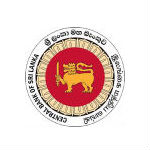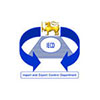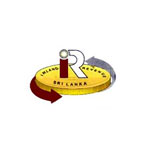Notices to the Public

Frequently Asked Questions
Can a new Personal Foreign Currency Account (PFCA) be opened by depositing unutilized balance of foreign travel allowance? What kind of documentary evidence should be submitted to banks, when opening new accounts? Are dual citizens eligible to open Personal Foreign Currency Accounts (PFCAs)? Can any Sri Lankan resident individual open a Personal Foreign Currency Account (PFCA) without having a regular foreign exchange income? If a person resident outside Sri Lanka remits foreign currency to a person resident in Sri Lanka, can the recipient open a Personal Foreign Currency Account (PFCA) with such funds? Can the holders of Personal Foreign Currency Accounts and Business Foreign Currency Accounts withdraw foreign currency notes for any purpose?
What is the current stance for remitting out current and retained profits earned from an investment made through an Inward Investment Account (IIA)? Can funds be remitted for medical purposes? Does “monetary gifts” fall under current transactions? Can monthly accommodation/living expenses be remitted out under family maintenance?
Can the Sri Lankans employed abroad obtain lease facilities from banks with absolute ownership of vehicles?
Is there any change in the requirement of repatriating export proceeds within 120 days?
Who have proceeded outside Sri Lanka on temporary basis over 182 days are considered as “non-residents”. Therefore, what is the status of a person who has gone for a travel for more than 182 days and now in Sri Lanka and request to open an account?
As per the regulation, persons who have proceeded outside Sri Lanka for a period of more than 182 days have to be considered as non-residents. Therefore, aren’t the dual citizens who just arrived Sri Lanka eligible for applying credit cards?
1. Who is a Restricted Dealer (RD)? RD is any person, class or classes of persons permitted by the Director – Department of Foreign Exchange to deal in foreign exchange within Sri Lanka for the purposes specified in the permit issued in terms of Section 4 (2) read with Section 16 of the Foreign Exchange Act (FEA). 2. What are the categories of RDs? Following companies/entities are presently granted permissions as RDs to engage in the money changing business; 3. What are the details of RDs who have been currently permitted to engage in the money changing business? The list can be viewed and downloaded under the field of the Money Changing Business- “Companies Permitted to Engage in Money Changing Business” in the home page of this website (www.dfe.lk). 4. What is the procedure of obtaining a permit for money changing business? Money Changers and other companies/entities are granted money changing permits in terms of the criteria approved by the Monetary Board of the Central Bank of Sri Lanka in time to time. 5.What are the basic requirements to be fulfilled to become a Money Changer? Basic requirements can be viewed under the field of the Money Changing Business – “ Obtaining a Money Changing Permit as a Restricted Dealer under Section 4(2)(a) & 4(2)(b) of the Foreign Exchange Act, No. 12 of 2017”, in the home page of this website. 6. Whether a license fee is charged to grant the permit? No. permission is free of charge. 7. Is an existing limited company eligible to engage in the money changing business? Yes. Any existing limited company which fulfills the all requirements mentioned in the website can obtain a money changing permit. 8. Are foreign companies which have branches registered in Sri Lanka eligible to engage in money changing business in Sri Lanka? Yes, the applications are considered on case by case basis. 9. Are the existing RDs permitted to open branches? 10 What are the permitted activities of RDs? Permitted activities are decided by the Department of Foreign Exchange and those are clearly mentioned in the permit and currently permitted activities can be listed as follows; 11. What is the period of validity of the Permits issued to RDs? Permits will usually be issued on calendar year basis. New permit may be issued for the following year before the date of expiry subject to the compliance with the conditions in the permit. 12 .What are the documents to be submitted by existing money changers to obtain money changing permit for the following year? 13. Are there any limits for currency purchases by RDs? There are no limits with regard to the amount of foreign currency purchased by RDs from the public. 14. What are the required documents RDs should look for at the time of sales and purchases of currencies? At the time of selling foreign currency, At the time of purchasing foreign currency, 15. Are RDs permitted to endorse the passports of persons for sales of foreign currency for the purpose of travelling? Yes. 16. Can a person resident in Sri Lanka purchase foreign currency notes from an Authorized Dealer (AD) as well as from a RD for travelling abroad? 17. Whether RDs can buy or sell any type of foreign currencies? RDs are permitted to accept/purchase only the foreign currencies which are accepted by their bank\s. 18. How do RDs obtain the exchange rate that they should purchase or sell foreign currency? RDs can obtain the exchange rates from their banks 19. Can customer ask for a receipt from the RD for his transaction? At the time of any currency sale or purchase, RDs should issue a receipt to the customer. Public has a right to ask for the receipt which include the information such as name & address of the RD, name & address of the customer and the details of the transaction etc. 20. How does a person identify any entity as a RD? All RDs should display a name board in front of their business premises which should indicate the permit number assigned to them by the Central Bank of Sri Lanka, copy of the permit and the following logo. 21. Whether customers can complain to the Central Bank of Sri Lanka with regard to any misconduct of the business by any RD? Yes. They can make any complaint to the Director, Department of Foreign Exchange, Central Bank of Sri Lanka, Colombo 01 with regard to any misconduct of the business by any RD.
1. Have foreign currency payments for imports been suspended/limited by the Order made under Section 22? No. Payments for imports have not been suspended/limited by the said Order. 2. Have outward remittances for education expenses, living expenses and for other purposes of current in nature been suspended/limited by the Order made under Section 22? No. Payments for education expenses, living expenses and for other transaction of current in nature have not been suspended/limited by the said Order. 3. Have all outward remittances through Personal Foreign Currency Accounts (PFCAs) and Business Foreign Currency Accounts (BFCAs) been suspended/limited by the Order made under Section 22? Payments for current transactions through PFCAs and BFCAs have not been restricted by the said order. However, payments for capital transactions through the said accounts has been limited up to USD 20,000, during the effective period of this Order. 4. Have the payments of dividends and other capital proceeds relating to the investments made by non-residents in Sri Lanka through Inward Investment Accounts been suspended/limited by the Order made under Section 22? No. Payments of dividends and other capital proceeds have not been suspended/limited by the said Order. 5. Has repatriation of LKR funds held in Sri Lanka by non-nationals (excluding Emigrants) through Capital Transaction Rupee Accounts (CTRAs) been restricted/suspended by the Order made under Section 22? No. the said Order has not imposed any suspensions/limitations on repatriation of LKR funds held in Sri Lanka by non-nationals (excluding Emigrants) through CTRAs. As per the general permission granted under the prevailing foreign exchange regulations, a non-national (excluding Emigrants) may remit out LKR funds equivalent to USD 30,000 per annum, subject to the Directions issued on CTRAs. 6. Can emigrants repatriate LKR funds held in Sri Lanka during the effective period of the Order under Section 22? Yes. An emigrant who claims Migration Allowance for the first time may remit USD 30,000 during the effective period of the said Order. Emigrants who have already claimed Migration Allowance can only remit USD 10,000 during the same period. 7. Have the payments for Capital Transactions outside Sri Lanka been fully suspended under the Order issued under Section 22?
(Refer paragraph 1(1) of Schedule II of Regulations No. 3 of 2017)
(Refer paragraph 1(3)(g) of Schedule II of Regulations No. 3 of 2017)
(Refer 3.1.1 of the Schedule II to the Directions No. 1 of 2017)
(Refer 4.3 of the Schedule I to the Directions No. 1 of 2017)
(Refer Directions No. 10 of 2017)

Frequently Asked Questions
Can a new Personal Foreign Currency Account (PFCA) be opened by depositing unutilized balance of foreign travel allowance? What kind of documentary evidence should be submitted to banks, when opening new accounts? Are dual citizens eligible to open Personal Foreign Currency Accounts (PFCAs)? Can any Sri Lankan resident individual open a Personal Foreign Currency Account (PFCA) without having a regular foreign exchange income? If a person resident outside Sri Lanka remits foreign currency to a person resident in Sri Lanka, can the recipient open a Personal Foreign Currency Account (PFCA) with such funds? Can the holders of Personal Foreign Currency Accounts and Business Foreign Currency Accounts withdraw foreign currency notes for any purpose?
Can funds be remitted for medical purposes? Does “monetary gifts” fall under current transactions? Can monthly accommodation/living expenses be remitted out under family maintenance?
Can the Sri Lankans employed abroad obtain lease facilities from banks with absolute ownership of vehicles?
Who have proceeded outside Sri Lanka on temporary basis over 182 days are considered as “non-residents”. Therefore, what is the status of a person who has gone for a travel for more than 182 days and now in Sri Lanka and request to open an account?
As per the regulation, persons who have proceeded outside Sri Lanka for a period of more than 182 days have to be considered as non-residents. Therefore, aren’t the dual citizens who just arrived Sri Lanka eligible for applying credit cards?
1. Have foreign currency payments for imports been suspended/limited by the Order made under Section 22? No. Payments for imports have not been suspended/limited by the said Order. 2. Have outward remittances for education expenses, living expenses and for other purposes of current in nature been suspended/limited by the Order made under Section 22? No. Payments for education expenses, living expenses and for other transaction of current in nature have not been suspended/limited by the said Order. 3. Have all outward remittances through Personal Foreign Currency Accounts (PFCAs) and Business Foreign Currency Accounts (BFCAs) been suspended/limited by the Order made under Section 22? Payments for current transactions through PFCAs and BFCAs have not been restricted by the said order. However, payments for capital transactions through the said accounts has been limited, during the effective period of this Order. 4. Have the payments of dividends and other capital proceeds relating to the investments made by non-residents in Sri Lanka through Inward Investment Accounts been suspended/limited by the Order made under Section 22? No. Payments of dividends and other capital proceeds have not been suspended/limited by the said Order. 5. Can emigrants repatriate LKR funds held in Sri Lanka during the effective period of the Order under Section 22? Yes. An emigrant who claims Migration Allowance for the first time may remit USD 100,000 during the effective period of the said Order.
(Refer paragraph 1(1) of Schedule II of Regulations No. 3 of 2017)
(Refer paragraph 1(3)(g) of Schedule II of Regulations No. 3 of 2017)
(Refer 3.1.1 of the Schedule II to the Directions No. 2 of 2021)
(Refer Directions No. 10 of 2017)












